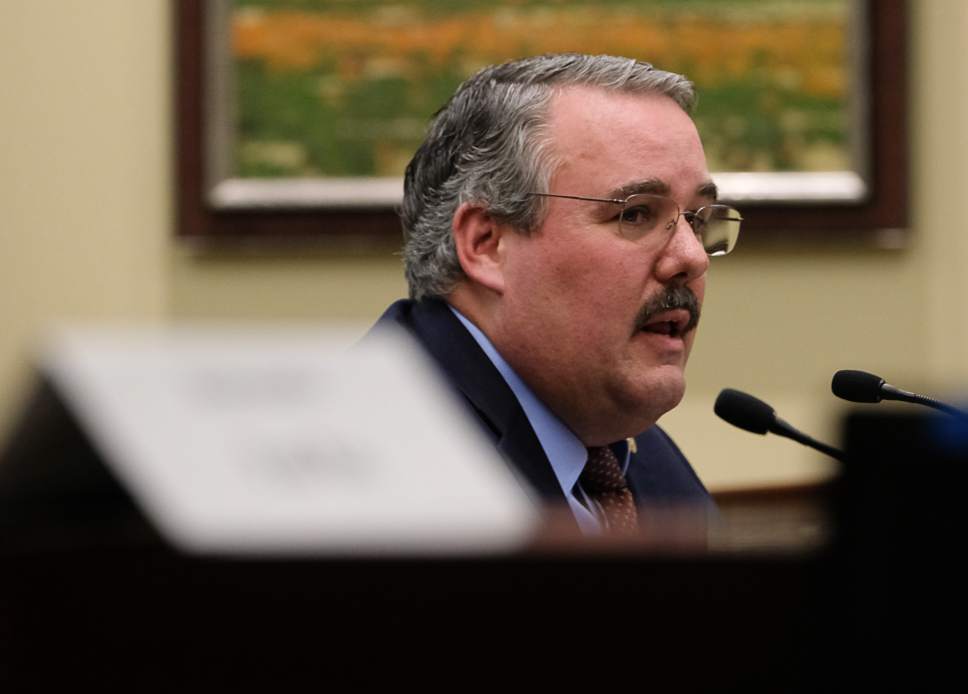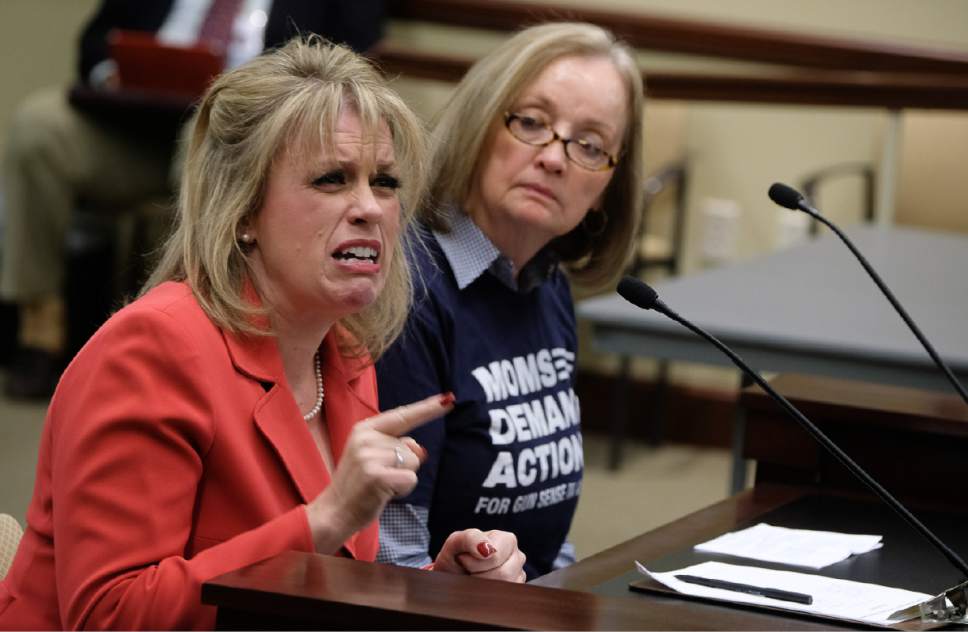This is an archived article that was published on sltrib.com in 2017, and information in the article may be outdated. It is provided only for personal research purposes and may not be reprinted.
Never believe it when a gun-slinging bill looks dead after a shoot-out. One arose from its supposed grave on Wednesday and blasted its way out of committee, leaving critics admittedly stunned.
The House Law Enforcement and Criminal Justice Committee voted 7-5 to resurrect and endorse HB237 to allow carrying concealed guns in Utah without a permit. It also contains proposed new, greater protections for victims of domestic violence.
HB237 — sponsored by the committee's chairman, Rep. Lee Perry, R-Perry — had apparently died earlier this month on a tie 5-5 vote. But a couple of members who were absent for the first vote appeared and supported it on Wednesday, after some minor amendments.
"We're stunned and ashamed," Anne Bagley, a survivor of the 2007 Trolley Square mass shooting, representing Moms Demand Action for Gun Sense, said after the resurrected bill passed. "But that's the way they work."
She added, "They didn't even give us an opportunity to testify this time… no testimony for or against," since public testimony was taken during an earlier Valentine's Day hearing on the bill.
"HB237 potentially allows dangerous people to easily carry concealed loaded weapons in our state in public places, such as Trolley Square," Bagley said at that earlier hearing, and "allows people who have not passed a background check or have proper safety training to carry loaded weapons around children and all of us."
Perry's new bill seeks to overcome objections that Gov. Gary Herbert voiced when he vetoed legislation in 2013 that would have allowed carrying concealed guns without a permit.
Herbert argued that Utah's concealed-carry permit system has worked well to protect the state with continuous daily background checks and a firearms-safety class — and he did not want to undermine it. He has since said he would veto similar proposals.
So Perry pushed a somewhat different bill this year. In addition to allowing concealed carry without a permit, it would ban people who have protective orders against them or who have been convicted of domestic violence from buying, owning or carrying guns.
Perry argues his bill also would allow those threatened by domestic violence to buy and use concealed weapons quickly to better protect their families.
In the earlier hearing, Heather Wolsey said her ex-husband almost killed her and abused their six children. When told he had been released from jail and that police had lost track of him, "I went out and bought a gun. And I broke the law because I carried it with me" in a purse.
She later took a concealed-carry permit class and applied for a permit in September. She finally received her permit in the mail this month. "Other victims should not have to wait that amount of time to protect themselves," she said.
Rep. Angela Romero, D-Salt Lake City, opposed the bill again on Wednesday, saying it was unwise to bring more guns into already unstable domestic abuse situations.
Rep. Kelly Miles, R-Ogden, opposed the bill saying it will encourage more people to carry guns — without training now required for a concealed carry permit.
Perry noted that adults may now carry guns openly legally — such as in a holster — but they break the law if they cover it with a coat. Perry, a Highway Patrol lieutenant, said his bill will actually improve safety by allowing covering up guns and preventing panic by some when they see firearms now.
Rep. Mike Winder, R-West Valley City, supported the bill saying, "It's almost backwards to say you can have a gun on your holster out in plain sight but you need a permit to put a jacket over it."
The action comes a day after the full House passed HB198 to allow Utahns as young as 18 to obtain permits to carry concealed weapons. Proponents argued that the bill would allow young women to carry guns to better protect themselves against rape.
Perry said in committee on Wednesday that both bills were written and pushed largely by the same gun-rights activist, Jeremy Roberts.





